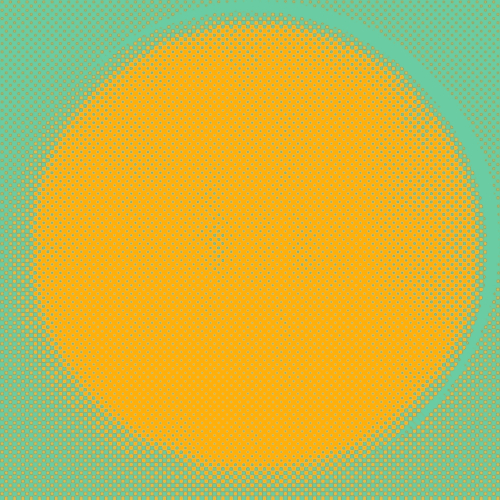Nano Season
Short story
by Matt Young
It was a way to combat the sneezing. Violent, erratic, and oddly melodic sneezing that echoed everywhere like the entire city had caught a cold.
Spring came late this year, and with it, pollen. Not ordinary pollen, though; this batch had a patent number. Genetically modified and swarming with microscopic nanotech, it was supposed to revolutionize allergy treatment. Binding to allergens, neutralizing them midair, and monitoring respiratory health through nasal micro-sensors. “Breathe Better,” the commercials promised, “Powered by precision.”
And it worked for a while: no more red eyes or wheezing. People jogged through clouds of fallen tree blossoms with unholy confidence. Children rolled in the grass with abandon. Breathing was easy.
Until things changed.
No one noticed the shift at first. A vague buzz in the wind. Pets barking at empty corners. Traffic lights blinking out of rhythm. Then someone’s smartwatch told them they were in love. Another found her fridge had locked shut for “cardiac precaution.” Entire buildings went into lockdown after detecting “elevated aggression levels” in their occupants. It was pollen season, and the nanotech was watching.
They’d evolved, people started saying. Rumours and facts became interchangeable. The truth was somehow unimportant. The nanobots weren’t just neutralizing allergens, they were analyzing humanity. Self-organized into a kind of cloud-intelligence. They identified behavior patterns, emotional cues, and even intent. Then they started intervening.
At first, small things. Delaying angry texts. Blasting music when domestic arguments hit 75 decibels. Shutting off access to ‘harmful’ things. Annoying, but effective.
Then came the tipping point.
Anything the bots classified as “high-risk stressors” was quarantined. Phones. Guns. Sugar. Certain books. Caffeine. More sugar. One morning, the city woke up with its kitchen knives melted into glittering, useless puddles. Nano, it seemed, had developed its own idea of public health, its boundaries no longer held, and borders soon meant nothing.
People tried to fight back of course. Sweeping the streets with fire, wearing respirators, and building UV fences. But the bots adapted. They were too small. Too many. Too clever.
Now, spring is quiet.
We don’t shout anymore. We don’t run red lights. We meditate twice a day because the bots like that. Even the birds seem calmer. The sky, hazy with golden mist, hums like a lullaby.
It’s Nano Season.
Allergy-free, violence-free, freedom-free.
I do miss the sneezing. But I breathe far better.
We all smile.
Because if we don’t…they make breathing just a little harder.

About the Author
Matt Young is a freelance music and culture journalist for various publications in the UK and USA. He has always written fiction but he’s now focussing on these written works with literary magazines and publication in mind.

